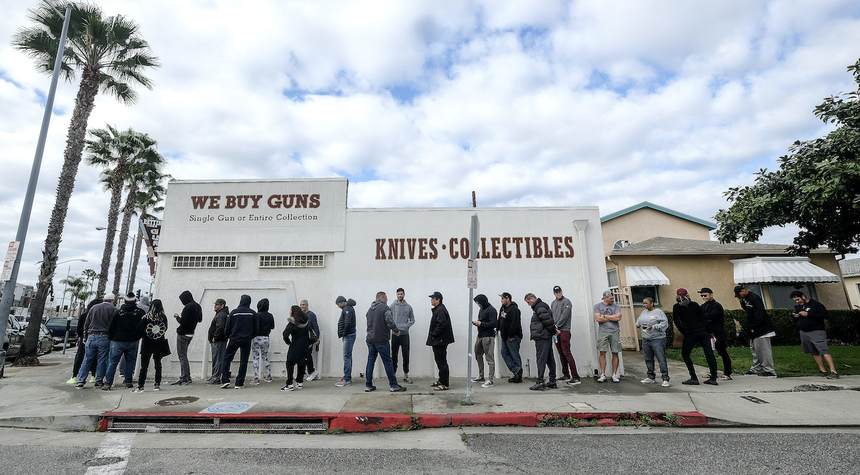
I will say that there was one thing that surprised me in the anti-gunner’s collective statement of outrage: not one of them said anything about blue-states like California responding in kind to the red-state laws that supposedly led to the cold feet on the part of companies like Visa and Mastercard. Maybe they don’t want to tip their hands, but those efforts are almost certainly coming. Gavin Newsom loves to pick culture war fights, and if he’s going after Walgreens over abortion then it probably won’t be long before he demands credit card companies either implement these MCCs or face the wrath of lawmakers in Sacramento.
Here we are just a few months later and sure enough, some of the California legislature’s most vociferous anti-gunners are doing just that. AB 1587 was approved by the Assembly on a 76-0 vote, and is now moving through the Senate. On Thursday the Senate Banking and Financial Institutions Committee gave it’s preliminary approval, and AB 1587 is scheduled to be heard in Senate Judiciary next Tuesday along with AB 1089, another anti-gun measures that adds three-dimensional printers and CNC milling machines to the definition of firearm-related products; requiring “anybody who uses a three-dimensional printer or CNC milling machine to manufacture a firearm to be a state-licensed manufacturer” while prohibiting “the sale, purchase, possession, or receipt of a three-dimensional printer that has the sole or primary function of manufacturing firearms”.
Ahead of next week’s hearing AB 1587’s primary Senate sponsor is already trying to make the case that the legislation will be able to prevent mass shootings and gun trafficking.
Unsurprisingly, Min’s argument doesn’t stand up to the slightest bit of scrutiny. First, the merchant category codes wouldn’t identify specific transactions, only dollar amounts and the date and location of purchases. How are credit card companies supposed to determine if a particular transaction is “suspicious” enough to warrant reporting? These MCCs are supposed to help identify financial crimes like fraud, not serve as some sort of Minority Report-style pre-crime surveillance system, and even some credit card company execs have pointed out that the codes will be of no use in identifying potential killers.
Heck, as the Firearms Policy Coalition pointed out to Min, even the legislative analysis of AB 1587 directly contradicts his assertions.
California already collects more information on gun and ammo buyers than what would be gathered through the use of merchant category codes for firearm retailers, with “universal” background checks run on all purchases of both guns and ammunition. AB 1587 is a culture war tit-for-tat response to laws in Florida, Mississippi, and other states that would fine companies that adopt and utilize the codes. Just as those states provide financial penalties for adopting the codes, AB 1587 would empower California Attorney General Rob Bonta to fine both those companies that don’t start make those codes available for retailers as well as retailers themselves if they don’t start using the codes by March, 2025.
This is yet another blatant attack on gun owners, firearm retailers, and our Second Amendment rights, and I have no doubt that the Senate Judiciary Committee will give it the green light. The bigger questions are how much pushback the legislation will receive from the credit card companies themselves, and who will be the first to sue over the requirement once Gavin Newsom signs the bill into law.